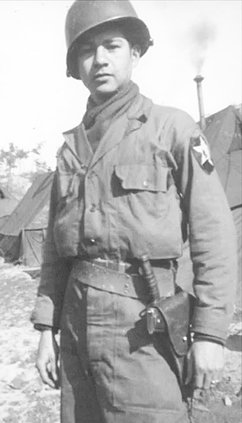|
It
has been called the forgotten war, but I doubt that those who had
the bad fortune of being there will ever forget the Korean War.
The war began on June 25, 1950, when the Northern Korean People's
Army invaded South Korea in a coordinated general attack at several
strategic points along the 38th parallel, the line dividing communist
North Korea from the non-communist Republic of Korea in the south.
North Korea aimed to militarily conquer South Korea and therefore
unify Korea under the communist North Korean regime.
This conflict has often been referred to as a "police action" instead
of a war because the United Nations was involved - the United States
never declared war on North Korea. It's been said that many Americans
were so war weary from World
War 2, that they were not ready for another one. However, it was
a terrible conflict and many members of our military died fighting
against Communist aggression.
The History Channel writes: "The Korean War was relatively short but
exceptionally bloody. Nearly 5 million people died. More than half
of these—about 10 percent of Korea's pre-war population were
civilians. More than 30,000 members of the American military were
killed."
Texas has always answered the call when it comes to defending our
country. As in past wars, fighting men from the Lone Star State were
quick to step up and serve. One of those men, Victor Hugo Espinoza,
went beyond the call of duty during one battle in Korea. Born at El
Paso in 1928, this young soldier joined the United States Army
in November 1950 and was deployed to Korea with the rank of corporal.
|
 |
Victor Espinoza
Photo courtesy National Archives and Records Administration |
According to
a piece written by Rolando Duarte for the Handbook of Texas, Espinoza
served with Company A, First Battalion, Twenty-third Infantry Regiment,
Second Infantry Division, as part of the larger United Nations peace-keeping
force.
The Army listed all of the medals and citations received as a result
of following actions: "On August 1, 1952, Corporal Espinoza and his
unit were tasked with capturing an enemy hill nicknamed "Old Baldy"
near Chorwon, Korea, when they came under heavy fire. After his squad
leader was wounded, Espinoza made a one-man assault across open ground.
Armed with only a rifle and grenades, he destroyed a machine gun nest,
a mortar emplacement, and two enemy bunkers.
"His ammunition exhausted, Espinoza continued his assault using grenades
left behind by the fleeing Chinese troops to clear several enemy trenches.
He then discovered a covert enemy tunnel and destroyed it with TNT.
In total, he was credited with killing fourteen enemy soldiers, wounding
another eleven, and clearing the way for the rest of his unit to secure
the remaining enemy strong points on "Old Baldy" (Hill 266 in west-central
Korea).
"For his service, Espinoza received a National Defense Service Medal,
a Korean Service Medal with one bronze star, a Combat Infantryman
Badge, a UN Service Medal, and the Republic of Korea War Service Medal.
He also received the second highest American combat medal, the Distinguished
Service Cross, at a parade held on Noel Field at Fort
Bliss in April 1953."
Espinoza reached the rank of master sergeant before leaving the military
in September 1952. The war officially ended July 27, 1953.
Now
for the rest of the story. It took 62 years before Master Sgt. Espinoza
would be awarded the Medal of Honor, instead of receiving it right
after the war had concluded— racism may have been the cause of
this delay.
In 2002 the United States Congress called on the Department of Defense
to review the service records of certain Jewish and Hispanic soldiers
who may have been denied the Medal of Honor due to racial prejudice.
As a result, on May 18, 2014, Victor Espinoza was posthumously given
the Congressional Medal of Honor.
This brave soldier died on April 17, 1986. He was buried at Fort Bliss
National Cemetery with full military honors. |
|
|
